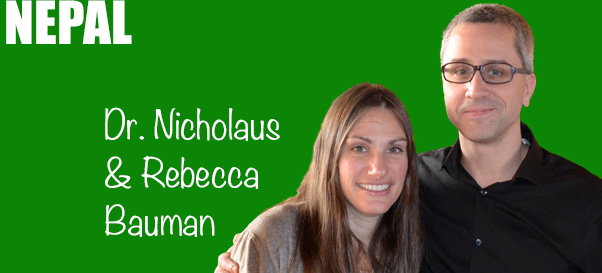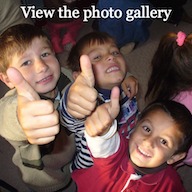 As I write this post I’m enjoying the rolling thunder, that comes and goes, interspersed with some heavy rain. The monsoon, at least officially, has come. Things are much greener than before, and the humidity has started, but nothing is unbearable. I’ve just spent a few hours with some Nepali colleagues watching India easily take-on Bangladesh in the semi finals of a Cricket tournament in England. I remember some of the rules from previous experiences in India – but am still innocent enough to marvel at the intricacies of the game when it is explained to me as a foreigner. India plays Pakistan on sunday – their arch-rival. There may be suicides in India if they lose, and lots of broken TV sets in Pakistan if they lose, as is projected to be most likely.
As I write this post I’m enjoying the rolling thunder, that comes and goes, interspersed with some heavy rain. The monsoon, at least officially, has come. Things are much greener than before, and the humidity has started, but nothing is unbearable. I’ve just spent a few hours with some Nepali colleagues watching India easily take-on Bangladesh in the semi finals of a Cricket tournament in England. I remember some of the rules from previous experiences in India – but am still innocent enough to marvel at the intricacies of the game when it is explained to me as a foreigner. India plays Pakistan on sunday – their arch-rival. There may be suicides in India if they lose, and lots of broken TV sets in Pakistan if they lose, as is projected to be most likely.
I’ve been working for about ? 6 weeks, and have also been thrown into the ‘outpatient’ side of things as well (the featured image above is from the outpatient waiting area…), which can get busy. Seeing 40 patients or so with a variety of problems is a full day for many at home, but I’m working through translation. Thankfully, Sunil, the MDGP resident who has been attached to me is quite competent, and between the two of us – we muddle along. Still doing a variety of things including some c-sections, and ovarian cystectomy / oophorectomy cases, burn grafts, some hernias, gallbladders, appendicitis, a bit of urology (although unfortunately not enough equipment to deal with stones or TURPs properly here…. at least yet), and a few bowel cases. Also – in the department of surgical trivia, I saw my first gallstone-related “Mercedes Benz” sign, when nitrogen gas is trapped inside fissured gallstones.
We had a sad case the other day which exemplifies some of the issues: a 40ish y/o man came to our hospital on his 8th day of a bowel obstruction. He had been advised to operate at a different hospital, but for some reason discharged himself. He was admitted at our hospital, and advised to have an operation. On the morning we saw him, his abdomen was quite tense, but seemingly no obvious signs of peritonitis – and he quite actively and vigorously tried to convince our team that he was getting better, passing flatus etc… His X-ray was quite classic, and given his lack of previous surgery, tense abdomen, and obvious diagnosis it seemed reasonable to perform a laparotomy: the likelihood of pathology seemed high. Later in the afternoon somehow he, and or his family were convinced of the need for surgery, and incredibly he had infarcted almost his entire small bowel. And there was nothing really to be done that would have made any difference for his life. His family was upset, but understanding.
Another thing I struggle with here in Nepal are the norms around patient consent. In Canada we are trained to focus mostly on the autonomy of the patient, to tell them the risks and the benefits, and to tell them what would be reasonably expected by someone in their situation. My tentative observations so far are as follows: In Nepal, my impression is that the decisions are generally made by the patient’s family which seems to be valued more highly in this culture than individual autonomy. Functionally however: this usually means that the consent process occurs with whichever male relative is most easily found. This seems to be true often whether the patient is male or female, but especially the latter. Certainly on a few occasions, a male family member has shown up at the last moment, and then in front of the female patient, or the mother of the child – the “actual consent” process starts. There are a whole host of issues here of course – not the least being the fact that the male member is also probably the one who will be footing the bill, in a system which is still 99% ‘private pay’. To function in a way that is respectful of Nepali norms, I am having to temper some of my Canadian practices: but it is not always immediately obvious to me to what degree I should acquiesce, or instead promote a “different” way of doing things, at least in my role here as an educator. My intercultural experience here at times challenges me, and our family, to be willing to bend, without breaking. And sometimes to sweat, as we figure out which is which.


